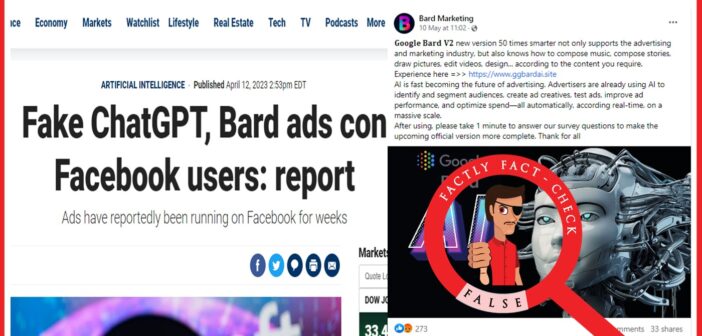Update (19 May 2023):
Following the previous debunking of false claims surrounding “Bard AI”, a new wave of misinformation has emerged, suggesting the availability of downloadable links for Open AI’s GPT-4 Chatbot (here and here).
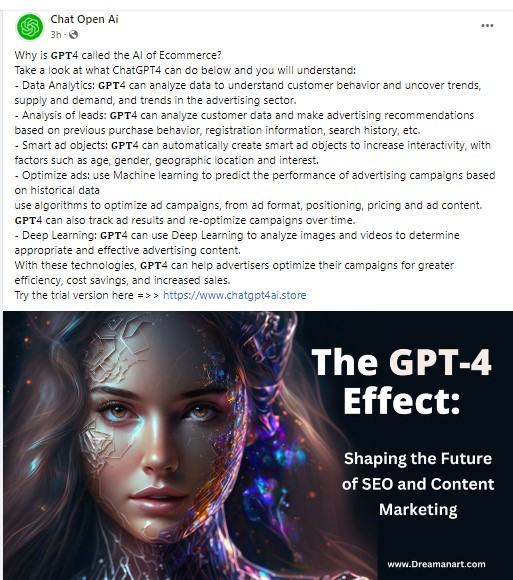
Our research revealed that the GPT-4 Chatbot is only available on iPhones as a Downloadable application (currently in the United States). Otherwise, Chat GPT-4 is accessible through the OpenAI website, in ChatGPT Plus paid subscription (here), which one can access through the Internet.
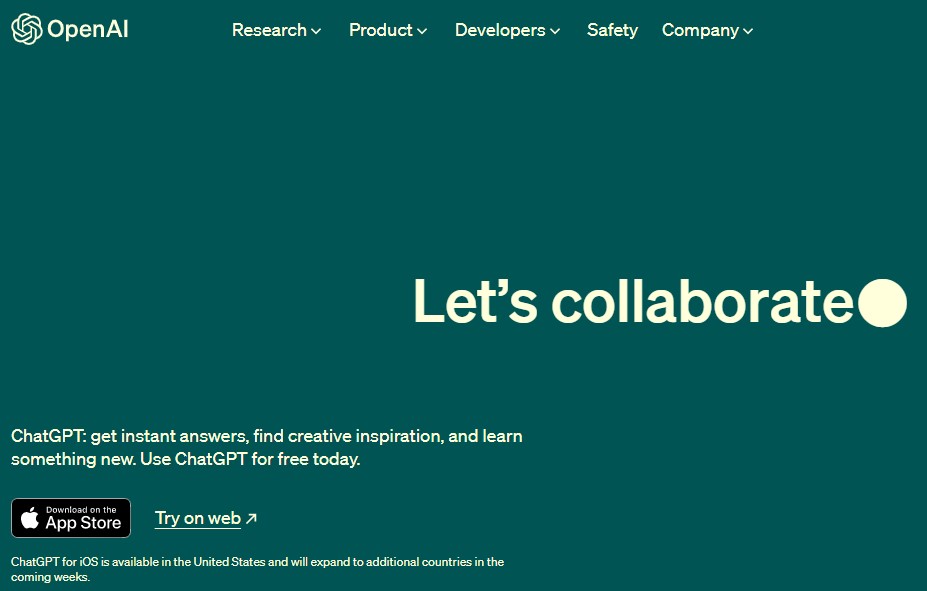
Like the Bard AI Scam, the weblink provided in these Facebook pages gets routed to a website where downloadable software is available. This website is not the official website of GPT-4. Hence, the links that are being shared on these Facebook pages can be dangerous, and as OpenAI has not officially released any downloadable software which can be used on a computer, one should not trust such links and download them, as they could compromise the sensitive information of users.
Published (12 May 2023):
Following the recent launch of Google Bard on 10 May 2023, a flurry of advertisements (here and here) have emerged on social media promoting a ‘downloadable version’ of Google’s AI chatbot. These posts provide a link to what they claim is this downloadable version. This article looks at the authenticity of these claims.
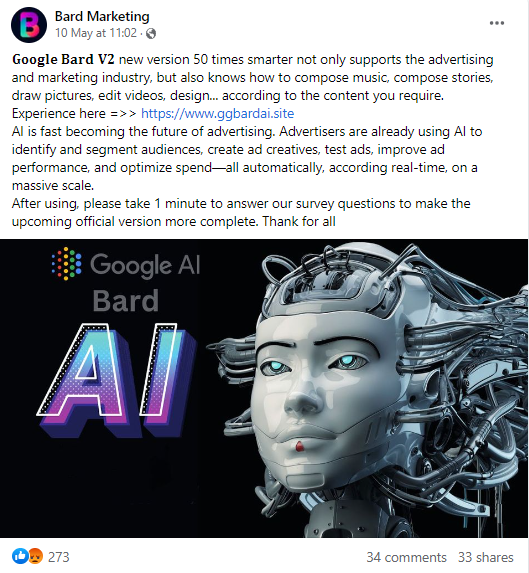
Claim: Social media ads propagating a downloadable variant of Google’s AI chatbot, Bard.
Fact: Google Bard, made available to all users as of 10 May 2023, functions exclusively in-browser and is not offered as downloadable software. The links embedded in these advertisements direct to malicious software, posing a risk of potentially compromising sensitive information on the systems where it’s installed. Hence, the claim made in this post is FALSE.
The Facebook pages responsible for circulating these ad posts are not officially verified. Our examination on Facebook for an official, verified Google Bard AI page returned no matches, indicating that Google has not yet created such a page. This suggests that the Facebook pages sharing these ads are unverified third-party entities, calling their credibility into question.
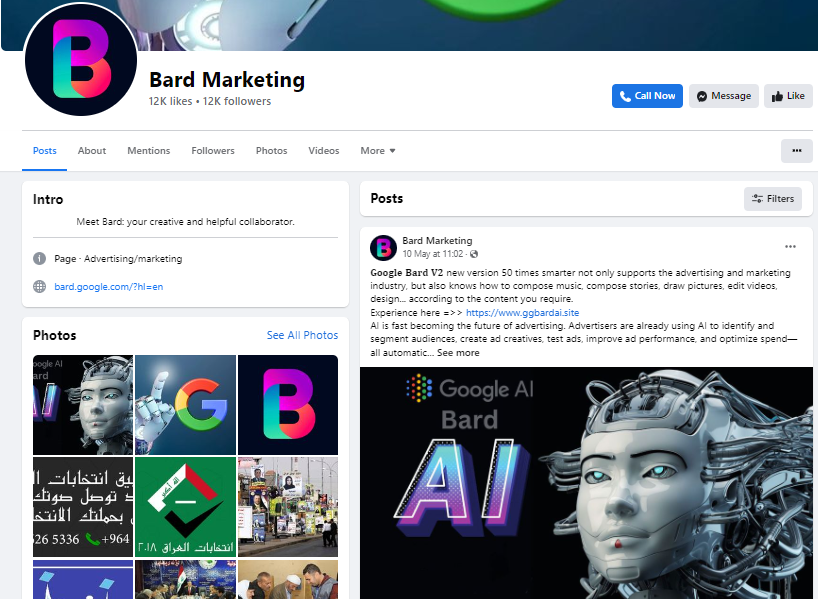
These advertisements purport that the provided link offers access to a downloadable version of Google Bard AI. However, considering that Bard is an AI chatbot accessible via a web browser or as a Chrome extension, it’s ill-advised to download any content from such unverified and potentially unsafe sources. The provided link redirects to a website with a URL entirely different from the official Bard AI website, and it hosts a downloadable .EXE file, which could be a form of malicious software.
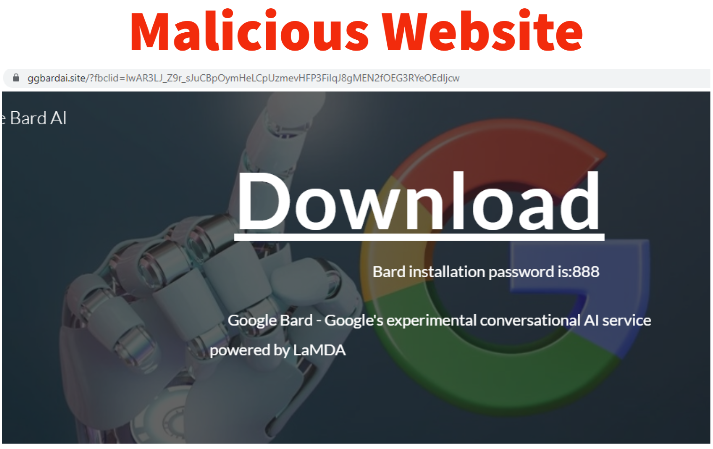
Moreover, there’s a lack of trustworthy online information that corroborates the existence of a downloadable version of Bard AI. In fact, news reports (here and here) warn that cybercriminals are exploiting compromised verified (and unverified) social media accounts to bait users into downloading malware.

Given this evidence, it’s plausible to deduce that these pages are deploying ads to distribute malware under the guise of Bard AI. One can access the Web version of the Bard here.
To sum it up, cybercriminals are attempting to ensnare social media users into downloading malicious content by exploiting ads posted through pages falsely linked to Bard AI.


